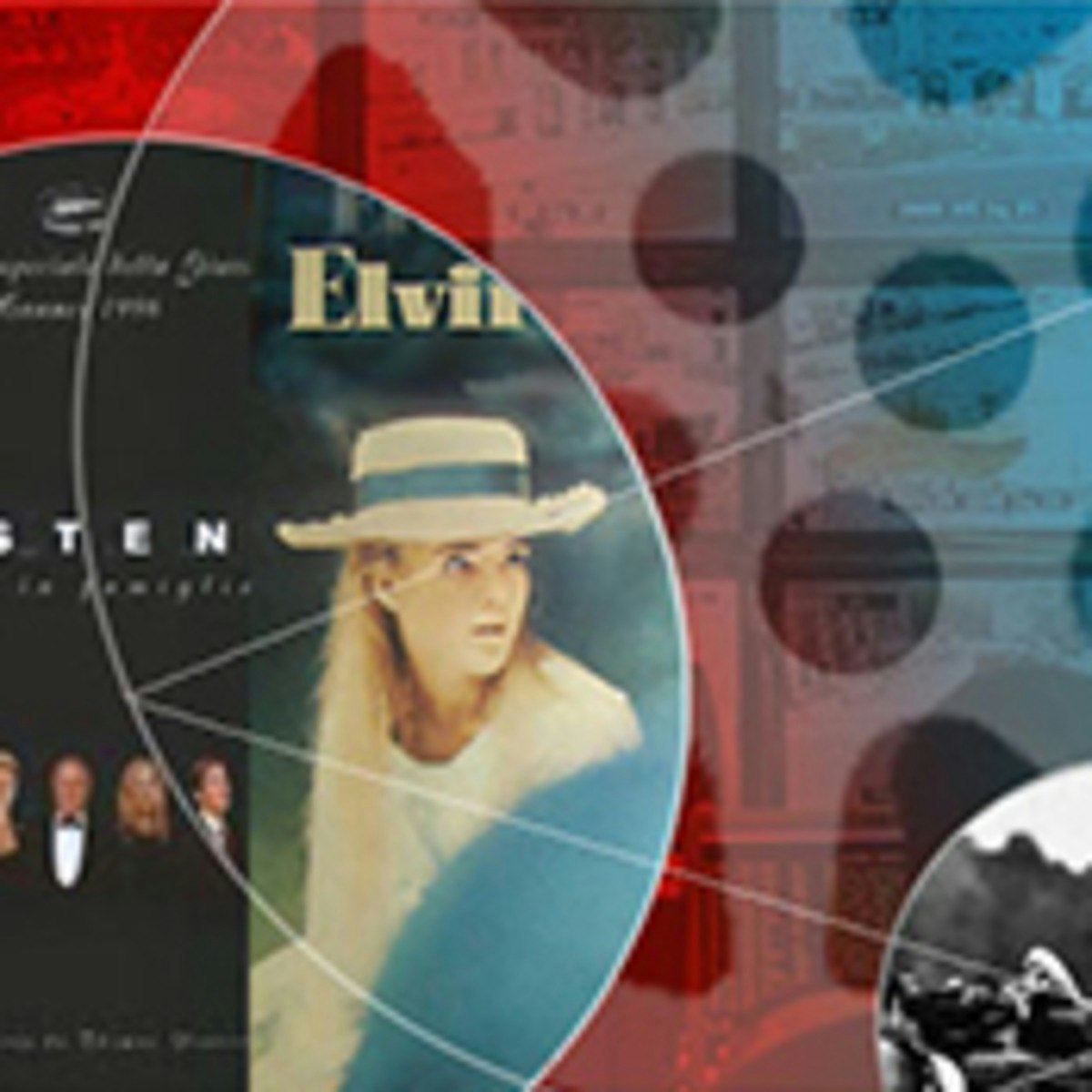Screenwriter
Becoming a Screenwriter: Crafting Stories for the Screen
A Screenwriter is the architect of stories told through film, television, video games, and other visual media. They create the blueprint—the script—that guides the entire production process, weaving together dialogue, action, and visual descriptions to bring characters and narratives to life. It's a role that blends artistry with technical craft, demanding creativity, discipline, and a deep understanding of storytelling.
Working as a screenwriter offers the unique opportunity to see your imagination realized on screen, potentially reaching millions. It involves delving into the human condition, exploring diverse worlds, and shaping cultural conversations. The collaborative nature of filmmaking also means working closely with directors, producers, and actors to refine and realize a shared vision, which many find deeply rewarding.
Overview of Screenwriting as a Career
Embarking on a screenwriting career means stepping into the world of narrative creation specifically for visual mediums. It requires dedication to the craft of storytelling and a willingness to navigate a dynamic and often competitive industry.
What Exactly Does a Screenwriter Do?
At its core, screenwriting involves translating ideas into a specific format readable by industry professionals. This includes developing compelling characters, structuring plots, writing engaging dialogue, and describing scenes in a way that evokes clear imagery. The scope extends beyond original ideas; screenwriters often adapt novels, plays, or real-life events for the screen.
Their work forms the foundation upon which directors, actors, and designers build. A well-crafted script not only tells a story but also provides essential cues for pacing, tone, and visual style. It's a blend of creative writing and technical precision, requiring both imagination and adherence to industry standards.
Screenwriters might work on feature films, television series, web series, commercials, or even interactive narratives for video games. The specific tasks can vary, ranging from pitching initial concepts to writing detailed scene-by-scene breakdowns and revising drafts based on feedback.
Understanding the nuances of screenwriting is fundamental. These resources provide insights into the core principles and practices of the craft.
From Silent Films to Streaming: A Brief History
The role of the screenwriter evolved alongside cinema itself. In the early days of silent film, scenarios were often brief outlines. As filmmaking grew more complex with the advent of sound and narrative features, the need for detailed scripts became paramount, establishing screenwriting as a distinct profession.
The Hollywood studio system solidified the screenwriter's role, though writers often worked under contract with limited creative control. The rise of independent cinema and television's "Golden Age" offered new avenues and greater autonomy. Each era brought new formats and storytelling conventions, shaping the craft.
Today, the proliferation of streaming services and digital platforms has again transformed the landscape. This creates diverse opportunities but also introduces new challenges, demanding adaptability from modern screenwriters navigating shifts in format, audience expectations, and distribution models.
Exploring film history provides context for contemporary screenwriting. These resources touch upon the evolution of cinema and storytelling.
Where Screenwriters Work: Key Industries
The most visible home for screenwriters is the film industry, crafting stories for theatrical releases ranging from blockbuster franchises to independent dramas. This requires understanding cinematic language and large-scale narrative structures.
Television offers another major avenue, particularly with the expansion driven by cable and streaming. TV writing is often more collaborative, involving writers' rooms where teams develop season-long arcs and individual episodes. Opportunities exist in sitcoms, dramas, miniseries, and children's programming.
Streaming platforms like Netflix, Hulu, and Amazon Prime Video have blurred the lines between film and television, commissioning original series, movies, and documentaries. The rise of shorter content formats for web series and mobile platforms also presents new niches for writers skilled in concise storytelling.
Beyond traditional entertainment, screenwriters find opportunities in the video game industry, designing narratives and writing dialogue for interactive experiences. Corporate videos, educational materials, and advertising campaigns also utilize screenwriting skills to convey messages effectively.
Key Responsibilities of a Screenwriter
The daily work of a screenwriter involves much more than just typing dialogue. It's a multifaceted role requiring creativity, structure, persistence, and collaboration.
Developing Story Concepts and Narrative Structures
Ideas are the starting point. Screenwriters generate original concepts or find unique angles on existing themes. This involves brainstorming, researching, and identifying stories with potential appeal and depth.
Once an idea takes shape, the screenwriter structures the narrative. This means outlining the plot, mapping character arcs, and determining the sequence of events. Familiarity with narrative models like the three-act structure is crucial for creating a satisfying story flow.
Developing a compelling logline—a concise summary of the story's premise—is often a key early step. This helps clarify the core conflict and attract interest from producers or agents. Strong structure provides the skeleton upon which the flesh of the story—scenes, dialogue, description—is built.
These courses delve into the art of structuring stories and developing compelling narratives.
These books are seminal guides to understanding story structure and concept development.
Writing and Revising Scripts
The primary output of a screenwriter is the script itself. This involves writing scenes with vivid descriptions, crafting authentic dialogue, and ensuring proper formatting according to industry standards. The first draft is often just the beginning.
Revision is an integral and often lengthy part of the process. Screenwriters rewrite extensively based on feedback from producers, directors, actors, or script readers. This might involve restructuring plots, deepening characters, sharpening dialogue, or adjusting pacing.
Screenwriters may also create other documents like treatments (detailed summaries) or outlines to pitch ideas or secure assignments. Polishing the script through multiple drafts is essential to producing work that is professional, engaging, and ready for production.
Learning the specific format and techniques for screenwriting is essential. These courses offer practical guidance on writing and refining scripts.
These books provide comprehensive guides to the mechanics of scriptwriting and revision.
Collaboration is Key
Screenwriting, particularly in film and television, is rarely a solitary endeavor. Writers must collaborate effectively with various stakeholders throughout the development and production process.
Working with directors involves translating the script's vision into visual terms and making adjustments to suit their interpretation. Collaboration with producers often focuses on story development, marketability, and budget considerations.
In television writers' rooms, collaboration is constant. Staff writers work together to break stories, outline episodes, and provide feedback on each other's drafts. Even feature writers often incorporate notes from studio executives or financiers.
Effective communication, openness to feedback, and the ability to negotiate creative differences are vital skills. Understanding the roles and priorities of collaborators helps ensure a smoother process and a stronger final product.
These resources touch on the collaborative aspects of creative industries.
Adapting Existing Works
Not all scripts are based on original ideas. Screenwriters are frequently hired to adapt material from other sources, such as novels, plays, biographies, news articles, or even previous films.
Adaptation requires identifying the core elements of the source material that will resonate cinematically. It involves making choices about what to keep, what to cut, and how to restructure the narrative for a visual medium. This often means condensing timelines, combining characters, or inventing new scenes.
Faithfulness to the source material must be balanced with the demands of the new medium. The screenwriter must understand both the original work's essence and the principles of effective screen storytelling. Legal aspects, such as securing rights, are also crucial in adaptation projects.
This book specifically addresses the challenges and techniques of adaptation.
Formal Education Pathways
While raw talent and a strong portfolio are paramount, formal education can provide a structured foundation, industry connections, and dedicated time to hone the craft of screenwriting.
Undergraduate Degrees: Laying the Groundwork
Many aspiring screenwriters pursue undergraduate degrees in fields like Film Studies, Creative Writing, English Literature, or Theater. These programs offer exposure to storytelling principles, narrative theory, critical analysis, and writing practice.
A film studies program provides a deep understanding of cinematic history, theory, and technique, which informs writing for the screen. Creative writing programs focus on broader storytelling skills applicable across genres, including character development, plot construction, and dialogue.
While no specific degree guarantees entry, a bachelor's degree demonstrates commitment and develops critical thinking and communication skills valued in the industry. Coursework often includes workshops where students share work and receive feedback, simulating aspects of professional collaboration.
These courses cover foundational creative writing skills relevant to aspiring screenwriters.
Graduate Programs and Specialized Workshops
For those seeking more intensive, specialized training, Master of Fine Arts (MFA) programs in Screenwriting are a popular option. These programs offer rigorous instruction, mentorship from experienced writers, and opportunities to develop a portfolio of polished scripts.
MFA programs often cultivate industry connections through guest speakers, internships, and showcase events. The competitive nature of these programs means admission typically requires strong writing samples. They provide a focused environment dedicated solely to the craft.
Beyond full degree programs, numerous workshops, certificates, and shorter courses offer specialized training. These can focus on specific genres (like comedy or horror), formats (TV pilots, feature films), or aspects of the craft (dialogue, structure). They provide flexible options for skill development.
The Role of Advanced Academic Study
While less common as a direct path to professional screenwriting, PhD programs in fields like Film Studies, Media Studies, or Narrative Theory can deepen understanding of storytelling's theoretical underpinnings. Research in these areas explores the cultural, historical, and psychological dimensions of narrative.
Such advanced study develops strong analytical and research skills. While not vocational training for screenwriting, this knowledge can enrich a writer's approach to theme, character, and structure. Some academics may also engage in screenwriting practice as part of their research or creative work.
Ultimately, a PhD is primarily geared towards academia or research roles. However, the deep engagement with narrative theory can offer unique perspectives for writers interested in complex or experimental storytelling.
These topics relate to the deeper analysis of narrative and media.
Online Learning and Skill Development
The digital age offers unprecedented access to screenwriting education. Online courses and resources provide flexible and affordable pathways for aspiring writers, career pivoters, and those supplementing formal training.
Can You Learn Screenwriting Online?
Absolutely. Numerous online platforms offer courses covering screenwriting fundamentals, from formatting and structure to character development and dialogue. These courses range from introductory overviews to in-depth masterclasses taught by industry professionals.
Online learning allows individuals to study at their own pace and on their own schedule, making it ideal for those balancing writing with other commitments. Many courses incorporate practical exercises, peer feedback, and portfolio development components.
While online learning requires self-discipline, it democratizes access to screenwriting knowledge. High-quality instruction is available regardless of geographic location, offering a viable alternative or supplement to traditional campus-based programs. OpenCourser's Arts & Culture section lists many relevant options.
These courses provide comprehensive introductions or specialized training suitable for online learning.
Balancing Self-Study with Portfolio Projects
Theoretical knowledge is essential, but practical application is what truly builds skill. Aspiring screenwriters must dedicate significant time to writing actual scripts. Online courses often include assignments, but independent projects are crucial for developing a unique voice and building a portfolio.
Self-study involves reading scripts, analyzing films and television shows, and consuming books on craft. Resources like screenwriting blogs, podcasts, and forums offer valuable insights and community support. Discipline is key to maintaining momentum without the structure of a formal program.
The goal is to produce finished scripts—spec scripts (original screenplays written "on speculation") or pilots—that showcase your abilities. These portfolio pieces are essential for entering competitions, seeking representation, or applying for writing positions.
These courses focus on producing finished works, key for portfolio building.
This book is a classic guide often recommended for developing marketable scripts.
Using Online Resources to Supplement Education
Even for those enrolled in formal programs, online resources offer valuable supplements. Online courses can fill gaps in specific areas, such as genre writing or script formatting software like Final Draft or Scrivener.
Websites hosting produced scripts allow students to study professional work firsthand. Online communities provide platforms for feedback and networking beyond the classroom. Masterclasses featuring renowned screenwriters offer insights and inspiration.
Furthermore, tools like OpenCourser allow learners to easily browse thousands of courses, compare syllabi, and use features like "Save to List" to curate personalized learning paths. The OpenCourser Learner's Guide provides tips on maximizing the effectiveness of online study.
These courses can supplement formal education by focusing on specific skills or software.
Career Progression and Entry Points
Breaking into screenwriting is notoriously challenging, often requiring persistence, networking, and a strong body of work. There isn't one single path, and careers often follow non-linear trajectories.
Starting Out: Entry-Level Roles
Many aspiring screenwriters begin in support roles within the industry to gain experience and make connections. Positions like script reader involve analyzing submitted scripts for production companies or agencies, providing valuable insight into what makes a script succeed or fail.
Working as a writer's assistant or production assistant (PA) on film or television sets offers firsthand exposure to the production process. A writer's PA specifically supports the writing staff, handling administrative tasks and sometimes getting opportunities to observe or contribute in the writers' room.
These entry-level positions often require long hours and modest pay but offer invaluable learning experiences and networking opportunities. They provide a foot in the door and a chance to understand the industry from the inside.
Moving Up: Mid-Career Advancement
Advancement often comes after demonstrating talent through spec scripts or securing representation from a literary agent or manager. An agent helps find writing assignments (open writing assignments, or OWAs) and negotiates contracts.
In television, a common progression involves starting as a staff writer in a writers' room, then moving up through roles like story editor, executive story editor, co-producer, producer, supervising producer, co-executive producer, and ultimately, executive producer or showrunner (the lead writer and creative head of a series).
For feature writers, progression might mean getting larger assignments, working on higher-profile projects, or gaining enough clout to get original spec scripts produced. Some screenwriters also transition into directing or producing their own work.
Building Your Portfolio: Spec Scripts and Competitions
A portfolio of high-quality writing samples is non-negotiable. For film, this typically means one or two polished spec feature screenplays. For television, it often involves an original pilot script plus a spec script for an existing TV show to demonstrate versatility.
Writing competitions, fellowships, and labs (like the Sundance Labs or Nicholl Fellowships) are crucial gateways. Placing well in a respected competition can attract attention from agents, managers, and producers, significantly boosting a writer's profile.
Continuously writing and refining new material is essential. Industry tastes change, and demonstrating an ongoing ability to generate compelling, well-executed stories is key to building and sustaining a career. Networking actively and seeking feedback are also vital parts of the process.
These courses focus on crafting the kind of work that builds a strong portfolio.
These books offer frameworks often used to develop commercially viable scripts.
Industry Trends Impacting Screenwriters
The media landscape is constantly evolving, presenting both new opportunities and challenges for screenwriters. Staying aware of these trends is crucial for career planning and adaptation.
The Streaming Boom and Shifting Formats
The explosive growth of streaming services (Netflix, Disney+, HBO Max, etc.) has created unprecedented demand for content, leading to more writing opportunities, particularly in television and limited series formats. This "Peak TV" era offers diverse platforms for storytelling.
However, this boom also brings pressures. Shorter season orders, unpredictable renewal timelines, and the push for binge-worthy content impact writing schedules and narrative structures. There's also increased competition as more writers vie for positions.
The rise of short-form content for platforms like TikTok or Quibi (though short-lived) also signals evolving audience appetites. Writers may need to adapt to telling stories concisely across various digital platforms.
According to recent industry analyses, such as those discussed by McKinsey, the streaming wars continue to reshape production and consumption habits globally.
Demand for Diverse Voices and Inclusive Storytelling
There is a growing industry focus on diversity, equity, and inclusion, both behind and in front of the camera. Audiences and industry leaders are increasingly calling for stories that reflect a wider range of experiences, perspectives, and identities.
This trend creates opportunities for writers from underrepresented backgrounds and encourages narratives that challenge stereotypes and explore diverse cultures. Production companies and studios are actively seeking out unique voices and stories.
Screenwriters benefit from understanding cultural sensitivity, authentic representation, and inclusive storytelling practices. This not only aligns with ethical considerations but also meets evolving market demands for relatable and relevant content.
AI Tools in Script Development: Promise and Peril
Artificial intelligence (AI) tools are emerging that can assist with aspects of screenwriting, such as generating story ideas, outlining plots, or even drafting dialogue. Some see potential for AI to augment creativity and streamline parts of the writing process.
However, the role of AI raises significant ethical and practical questions. Concerns exist around copyright, originality, and the potential devaluation of human creativity. The 2023 Writers Guild of America (WGA) strike highlighted these concerns, seeking regulations on AI use in scriptwriting.
While AI might become a tool for some writers, the core elements of compelling storytelling—emotional depth, unique voice, nuanced characterization—currently remain human domains. Screenwriters need to stay informed about AI developments and their potential impact on the profession.
Challenges and Barriers to Success
The path of a screenwriter is often paved with obstacles. Understanding these challenges helps set realistic expectations and develop strategies for navigating them.
High Competition and Freelance Instability
The allure of screenwriting attracts many hopefuls, making it an intensely competitive field. Breaking in requires exceptional talent, persistence, and often, a degree of luck. Thousands of scripts circulate, but only a small fraction get produced.
Most screenwriters work on a freelance basis, moving from project to project. This can lead to financial instability, with periods of intense work followed by stretches of unemployment. Securing consistent work often requires strong networking skills and a proven track record.
Building a sustainable career demands resilience in the face of rejection and the ability to manage the unpredictable nature of freelance work. Financial planning and potentially developing complementary income streams can be important.
This course helps writers navigate the mental hurdles of the profession.
Creative Burnout and Deadline Pressures
The creative process can be demanding, and screenwriters often face intense pressure to deliver high-quality work under tight deadlines. This is particularly true in television writers' rooms or when revisions are requested during production.
Sustaining creativity over long periods, dealing with critical feedback, and managing the isolation that can sometimes accompany writing can lead to burnout. Maintaining passion and inspiration requires self-care and strategies for managing stress.
Developing healthy work habits, setting boundaries, and finding ways to recharge creatively are essential for long-term sustainability in this demanding field.
This classic book offers insights into the writing life and overcoming creative struggles.
Navigating Intellectual Property Rights
Understanding copyright law and intellectual property (IP) rights is crucial for screenwriters. Protecting original ideas and ensuring proper credit and compensation for work are fundamental aspects of the profession.
Contracts for writing assignments or script sales can be complex. Issues around ownership, royalties, credits, and adaptation rights need careful consideration. Writers often rely on agents, managers, or entertainment lawyers to navigate these legal intricacies.
Joining organizations like the Writers Guild of America (WGA) provides access to resources, standard contracts, and advocacy regarding IP protection and fair compensation. Understanding industry standards and legal frameworks is vital for safeguarding a writer's interests.
Transferable Skills and Alternative Careers
The skills honed as a screenwriter—storytelling, structure, character development, clear communication—are highly valuable and transferable to various other fields.
Storytelling Beyond Film and TV
The ability to craft compelling narratives is in demand across many industries. Marketing and advertising rely on storytelling to connect with consumers and build brands. Corporate communications use narrative techniques for internal training, presentations, and public relations.
The video game industry requires writers to create immersive worlds, engaging plots, and believable character dialogue (Design category). Technical writing and instructional design also benefit from clarity and structuring information effectively, skills related to screenwriting.
Even fields seemingly distant, like law or business, value strong narrative skills for constructing arguments, pitching ideas, or presenting cases.
Leveraging Skills for Other Forms of Writing
Many screenwriters also work in other writing disciplines. The principles of narrative structure and character development translate well to writing novels or short stories. Some screenwriters find success publishing fiction alongside their script work.
Playwriting shares similarities with screenwriting in its focus on dialogue and scene construction, offering another potential avenue. Journalism or feature writing also draws on research, interviewing, and narrative structuring skills.
These alternative writing paths can provide creative outlets, supplementary income, and ways to keep storytelling muscles sharp between screenwriting projects.
These courses explore other forms of narrative writing.
Transitioning to Adjacent Roles
Experience as a screenwriter provides a strong foundation for moving into related roles within the film and television industry. Many writers transition into directing, bringing their own scripts or those of others to the screen.
Producing is another common path, leveraging story development skills and industry knowledge to oversee projects from conception to completion. Script editing or development executive roles involve working closely with other writers to refine scripts and shape projects for production companies or studios.
Teaching screenwriting at universities or workshops offers a way to share expertise and mentor emerging talent. The deep understanding of story gained through writing is applicable in numerous creative and analytical capacities within the media landscape.
International Opportunities and Localization
The film and television industries are increasingly global. Screenwriters may find opportunities beyond their home country, collaborating on international productions or adapting stories for different cultural contexts.
Regional Demand Variations
While Hollywood remains a dominant force, vibrant film and television industries exist worldwide. Centers like Bollywood (India), Nollywood (Nigeria), and burgeoning markets in Europe, Asia, and Latin America create demand for local stories and talent.
Opportunities may exist for writers familiar with specific regional cultures or languages. Understanding the unique storytelling traditions, genres, and market preferences of different territories can be advantageous.
Some writers may choose to relocate or work remotely on international projects, while others might focus on stories with global appeal that can travel across borders.
Adapting Scripts for Cross-Cultural Audiences
Localization involves more than just translation. Adapting a script for a different cultural audience often requires adjusting humor, references, character motivations, and social dynamics to resonate effectively.
Screenwriters involved in localization need cultural sensitivity and an understanding of how narrative elements might be perceived differently across cultures. This can involve collaborating with local writers or consultants.
As global co-productions become more common, the ability to write stories that bridge cultural divides or can be successfully adapted for multiple markets is an increasingly valuable skill.
Working with International Co-productions
Co-productions involve partnerships between companies from different countries to finance, produce, and distribute content. These projects often require navigating different funding systems, legal frameworks, and creative sensibilities.
Screenwriters on co-productions may need to blend elements that appeal to multiple target audiences or incorporate perspectives from different cultural backgrounds. Flexibility and strong cross-cultural communication skills are essential.
While complex, international co-productions offer access to diverse funding sources, broader distribution potential, and the opportunity to tell stories with a global scope.
Frequently Asked Questions (Career Focus)
Navigating the path to becoming a screenwriter often raises common questions. Here are answers to some frequently asked queries.
How can I break into screenwriting without connections?
While networking helps, talent and persistence are key. Focus on writing exceptional scripts—a brilliant spec script is your best calling card. Enter reputable screenwriting competitions, labs, and fellowships; success in these can attract agent/manager attention even without prior connections.
Utilize online platforms to showcase work and connect with peers. Consider entry-level industry jobs like script reader or assistant to gain experience and meet people organically. Build genuine relationships based on shared passion and respect for the craft, rather than purely transactional networking.
Ultimately, a compelling voice and undeniable writing skill can open doors, even without an initial network. Be patient, persistent, and continuously hone your craft.
Is a film degree necessary, or is raw talent enough?
A specific degree is not strictly required. The industry values strong writing above all else. Many successful screenwriters do not have film degrees, relying instead on talent, self-study, workshops, and practical experience.
However, a relevant degree (Film, Creative Writing) can provide structured learning, dedicated writing time, valuable feedback, and networking opportunities. It demonstrates commitment but doesn't replace the need for excellent scripts.
Focus on building a killer portfolio. Whether developed through a formal program or self-directed learning and practice, demonstrable writing ability is the most crucial factor.
What are typical income ranges at different career stages?
Screenwriter income varies wildly and can be unpredictable, especially early on. Entry-level assistants or readers earn modest salaries. Early script sales or assignments might fetch amounts set by WGA minimums (if applicable), but consistent income isn't guaranteed.
Mid-career writers with credits might earn significantly more per project, potentially six figures for a feature script or high per-episode fees in television. Established, high-demand writers can command seven-figure deals.
However, income is project-based and often inconsistent. According to U.S. Bureau of Labor Statistics data for writers and authors (a broad category including screenwriters), median pay varies, and freelance instability is common. Joining the WGA can provide access to standardized minimums and benefits.
How will AI impact job prospects for screenwriters?
The long-term impact of AI is still unfolding. Currently, AI tools can assist with brainstorming or basic drafting, but they lack the nuance, creativity, and emotional depth required for compelling screenwriting. Concerns exist about AI potentially being used to undercut writers or generate low-quality scripts.
Industry bodies like the WGA are actively working to establish regulations ensuring AI is used as a tool, not a replacement, and that writers retain rights and fair compensation. It's likely that AI will become another tool in the writer's arsenal, but human creativity will remain central.
Staying informed about AI developments and focusing on uniquely human storytelling skills—voice, empathy, complex characterization—will be key for writers navigating the future landscape.
What is the role of unions like the WGA?
The Writers Guild of America (WGA), East and West, is the labor union representing screenwriters in film, television, and new media in the United States. Membership provides significant benefits and protections.
The WGA negotiates minimum basic agreements (MBAs) that set standards for compensation, credits, residuals (payments for reuse of material), and working conditions. It provides health insurance and pension plans, offers script registration services to help protect intellectual property, and advocates for writers' rights on industry-wide issues (like the recent strikes addressing AI and streaming residuals).
While not all screenwriting work falls under WGA jurisdiction, membership is a major goal for many professional writers due to the protections and collective bargaining power it offers. Eligibility typically requires accumulating professional writing credits.
How do you balance artistic vision with commercial demands?
This is a perennial challenge in screenwriting. Film and television are both art forms and businesses. Writers often need to find a balance between telling personal, meaningful stories and meeting the demands of the marketplace (genre conventions, audience appeal, budget constraints).
Successful writers learn to navigate feedback from producers and executives, incorporating notes constructively while protecting the core integrity of their vision. This involves choosing battles wisely and finding creative solutions that satisfy both artistic and commercial needs.
Developing a strong voice and unique perspective is crucial, but so is understanding genre, structure, and what resonates with audiences. It's often about finding projects where personal passion aligns with market viability, or skillfully adapting one's vision to fit project parameters.
Becoming a screenwriter is a journey that demands passion, persistence, and a deep love for storytelling. While the path can be challenging and the industry competitive, the rewards of bringing stories to life on screen are immense. Whether pursuing formal education, utilizing online resources, or forging your own path, dedication to craft and continuous learning are essential. Explore the resources on OpenCourser to find courses and books that can help you build your skills and achieve your screenwriting goals.




























